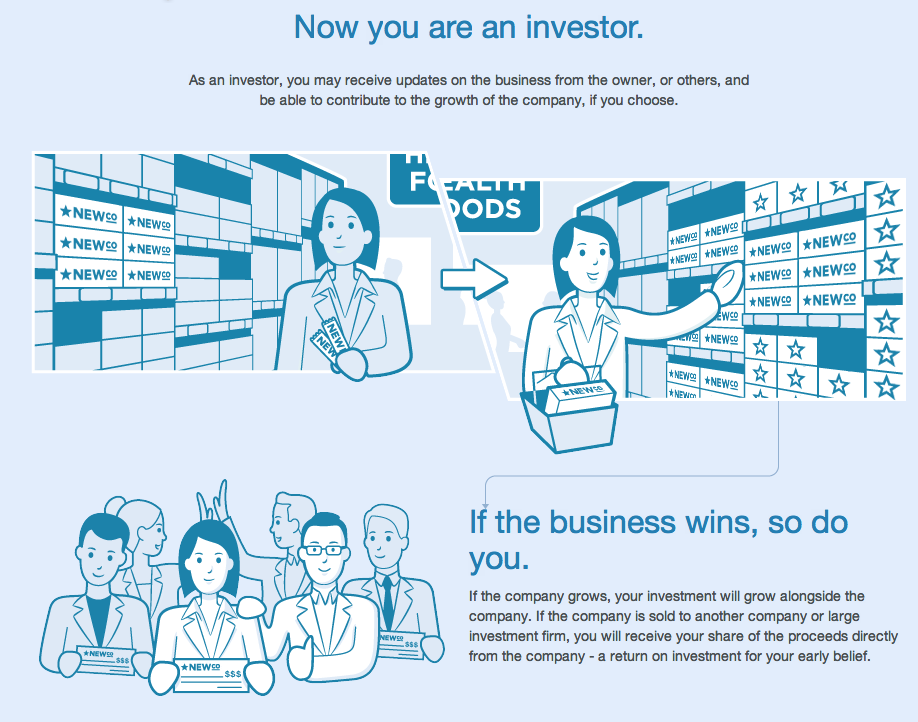
I have been covering the financial industry and the Web for more than 15 years, and there’s never been a more disruptive time in the world of private placements than now. For the first time, small private companies are becoming a real potential asset class for millions of investors.
One asset class that may be worth a look is consumer product startups. And CircleUp is trying to be the platform to find them.
So far, so good. The San Francisco-based startup that launched in April 2012 is off to a great start. CircleUp announced Tuesday that it’s raised $7.5 million in Series A funding, led by Union Square Ventures, with participation from Google Ventures, Maveron and Rose Park Advisors, run by Clayton Christensen, known for his book The Innovator’s Dilemma. This is on top of a priced round last year, which brought in $1.5 million in seed funding. Since gettings its seed round, CircleUp has been busy vetting 800 companies that have applied to get on its platform. It’s also helped 12 of them raise $10 million in funding. Companies are raising anywhere between $500,000 to $1.5 million on the site, said Ryan Caldbeck, founder and CEO.
The average time it’s taken to raise the funds is 61 days. While Caldbeck wouldn’t disclose the average investment size in each company, he did say that the number of investors in any particular company has never been over 50. That’s a lot of investors in one company! But if you’re looking for funds, maybe that’s what it takes.
So what kind of companies can you invest in on CircleUp? Young companies about three to four years old, with more than $1 million in revenue and with consumer products to sell, said Caldbeck. Consumer product goods are tangible items, like sodas, soaps, food items, or skin care or hair care products. If you walk into your local Starbucks, you might find some tasty treats packaged by a local consumer products company. You might also be able to invest in a restaurant,
One company called Peeled Snacks, which makes organic dried food snacks, raised more than $2 million by using CircleUp (though it’s unclear how much of that was raised on CircleUp). Episencial, which makes skin care products, is another company that’s raised money on the platform.
There are about 1.5 million consumer goods and retail companies in the US that generate under $10 million in sales. Those are the companies that CircleUp is targeting, said Caldbeck. It’s unclear how much money those companies have raised in the past. That data is hard to come by. So the question is: Is that a big enough market for the VCs? I asked.
Caldbeck believes that if all those companies raise $1 million, then the numbers look compelling. Indeed that’s $1.5 trillion in funds raised. Still, not every company can be expected to be able to raise that amount. Not all would be worth investing in. Even CircleUp believes it can only work with a select few, having chosen to work with 2% of the companies that have applied to raise money on its platform.
If 2% of the 1.5 million companies were to raise funds on CircleUp, that’s 30,000 companies. If they raise $1 million each, that’s a $30 billion market opportunity.
If CircleUp were to get 10% of that market, that’s $3 billion raised on its platform. If it can make even 1% in fees, that’s $30 million in revenue.
Caldbeck wouldn’t disclose how much it’s charging companies to raise money on his platform. He only said that it’s comparable to how much it would cost a company on an offline site. Now CircleUp also has a relationship with WR Hambrecht, which holds a broker-dealer license to be able to make these transactions happen. That means CircleUp also has to pay WR Hambrecht a fee. Over time, however, CircleUp hopes to have its own broker-dealer license and it’s in the process of obtaining its own, said Caldbeck.
Crowdfunding space
This sector is certainly heating up. Y Combinator-backed FundersClub, which is trying to also open up the startup asset class to more investors, just told its investors that it will be charging “carried interest” of 20% on the funds that are raised on its platform. FundersClub, which also charges an upfront fee of 10% to cover administrative costs, is using the venture capital model to help investors place smaller chunks of capital into startups. In late March, the YC Combinator mini fund was made available to accredited investors.















